Areas and lines of research
The R+D+i work carried out by BioKeralty is carried out thanks to its participation in projects at a national and international level in collaboration with various strategic partners and entities. Our research work encompasses a wide variety of areas within which different lines of research and projects can be identified.
Primary care
Primary care includes a health and well-being vision focused on individuals, families, and communities’ needs and circumstances. According to the World Health Organization (WHO) definition, primary care understands health and physical, mental and social well-being as a global and interrelated concept.
According to the Keralty Health Model, primary care should promote coordination among sectors allowing a comprehensive and integrated care at all levels of complexity in order to guarantee a greater state of well-being in users. Consequently, primary care should not be understood as just another level of care, but as a “model of care”. In this sense, five unique characteristics have been identified whose performance leads to a greater problems’ resolution capacity: accessibility, continuity, longitudinal capacity, comprehensiveness and coordination.
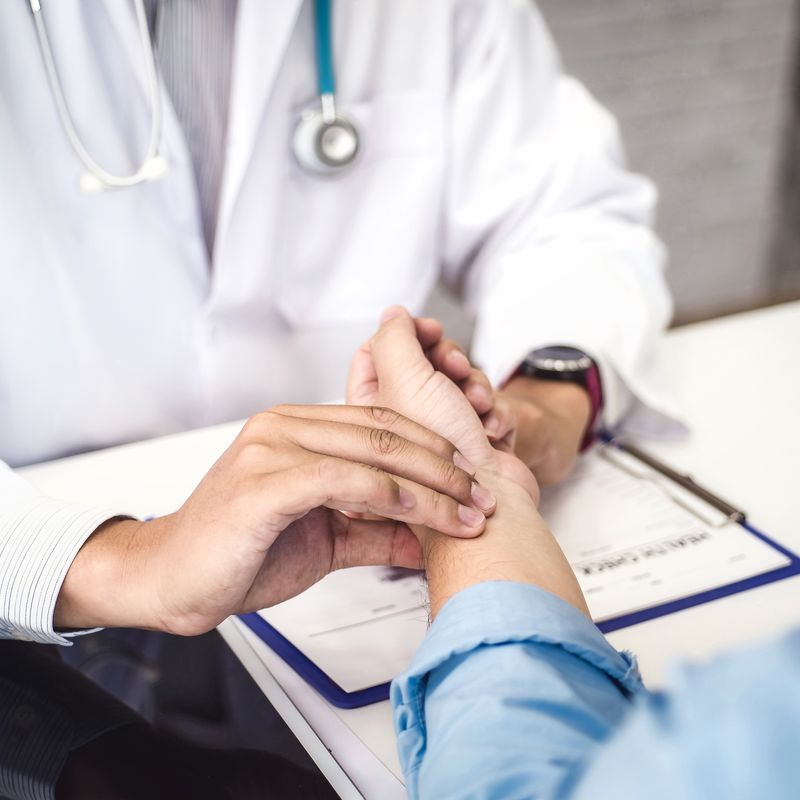
Cancer
This area has focused its efforts on the search, design, execution and monitoring of different projects centered in diagnosis and treatment of oncological processes in order to improve the survival rates and quality of life of the affected people. To this aim, the establishment of national and international alliances with different agents (public and private) leaders in cancer research is considered a priority, making possible to transfer the results obtained to the clinical practice.

Chronic and neurodegenerative diseases
In terms of health, finding effective therapies against aging (closely associated with chronic neurodegenerative diseases) constitutes one of the main challenges of the current society in order to counteract the effects derived from demographic transformation. In this context, the prevention and treatment of chronic neurodegenerative diseases could allow a decrease in dependency and socioeconomic impact.
The Chronic Diseases and Neurodegenerative Diseases research team has focused its efforts on the search, design, execution and monitoring of those projects oriented toward improving processes, care, treatments and quality of life for patients with this disease conditions involving at the same time professionals and citizens.
In this context, BioKeralty considers the establishment of national and international alliances with public and private agents that currently lead research in chronic and neurodegenerative diseases a priority in order to transfer the results obtained from the different researches to clinical practice.

Infectious diseases
The infectious diseases area focuses its research on improving the prevention, diagnosis and/or treatment of diseases caused by an infectious agent (virus, bacteria, fungi, protozoa or parasites).
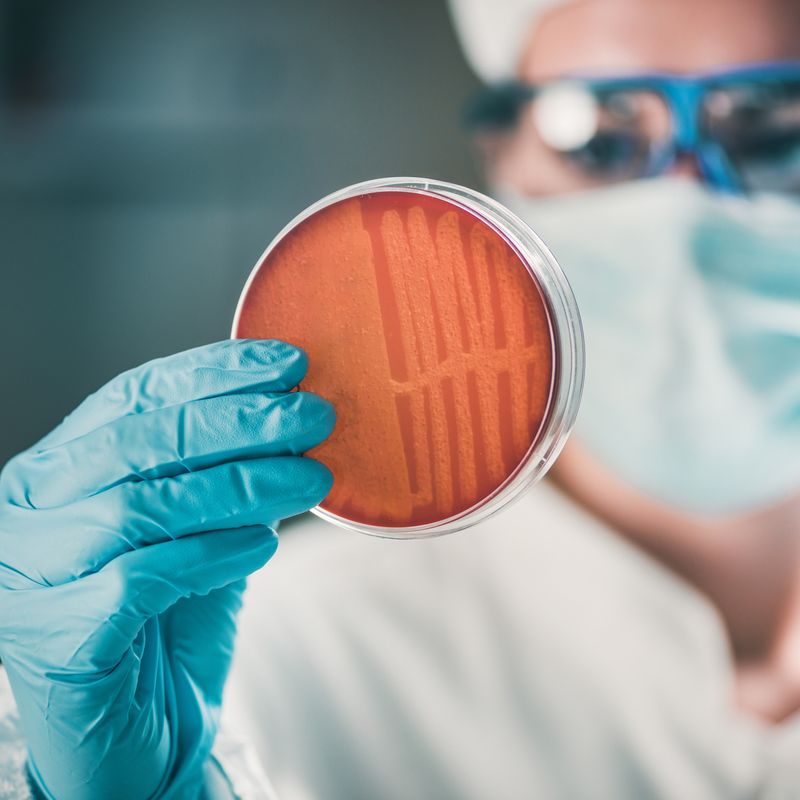
E-health
The e-Health area purpose is to make a safe and cost-effective use of information and communication technologies (ICTs) applying them as support in health processes and areas related to the health sector (care services, surveillance and health documentation, education and research). In this context, BioKeralty made an effort to develop projects with technological base and offer transversal support to those projects applied in other areas of the organization that work with specific pathologies.
In this way, e-Health area focuses its work on support technologies and professionals’ training for e-learning activities) in clinical support technologies, diagnosis, treatment and intervention through Artificial Intelligence models and techniques. Artificial Intelligence offers platforms that allow the collection, analysis and sharing of Big Data in the healthcare environment through tools such as cloud-computing, telemedicine resources (telemonitoring and telecare) and e -Health related management optimization and processes.

Genomics and personalized medicine
Genomics (also known as personalized medicine) seeks to identify genetic, environmental and lifestyle factors to prevent, diagnose or treat a disease. Genomics has been also defined as “precision medicine".
Nowadays, this new discipline is being implemented in the traditional health system being the increase in patient’s awareness, the expansion of infrastructures and the improvement of information management some examples. The permanent collaboration with clinics and institutes (both public and private) is essential for the establishment of national and international alliances to normalize personalized medicine practice in the clinical setting.
Today, the main interest areas are, on the one hand, the development of genetic tests for neurodegenerative, metabolic, orphan and oncological diseases and, on the other hand, the development of personalized medical devices for their application in regenerative medicine. As well, it is also remarkable the work done on the implementation of a genomic sequencing platform able to analyze, interpret and associate genetic variables in certain diseases.
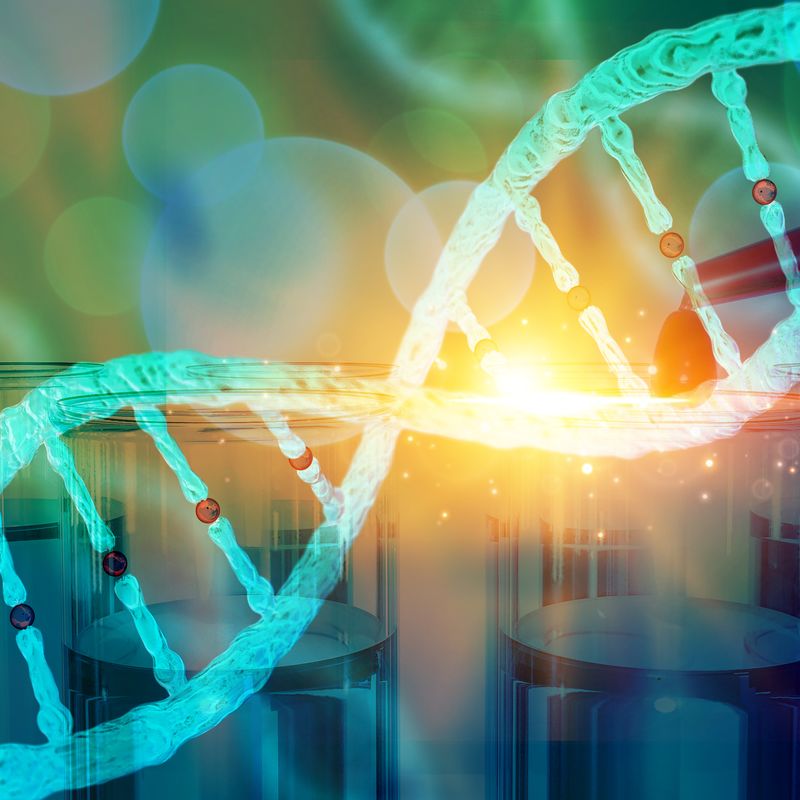
Regenerative medicine
Regenerative medicine is an interdisciplinary field focused on the repair, regeneration or replacement of damaged tissues and organs to restore their normal function. The repair of these organs and tissues is possible thanks to the stimulation of body's own cells or replacing them by other artificial cells created though tissue engineering.
Following the example of other areas in which BioKeralty works, it is also essential to establish technological alliances with different leading national and international public and private agents in the field of regenerative medicine in order to transfer the results obtained to clinical practice.
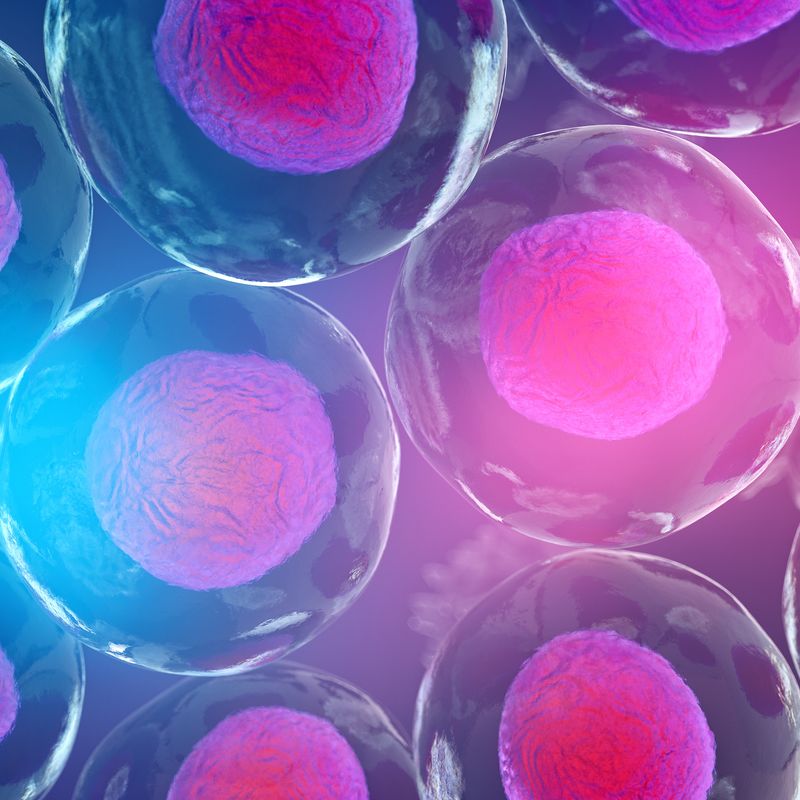
Nanotechnology
For several years, BioKeralty has worked in the Nanotechnology area, being one of its strategic lines due to its great potential and health and medical care challenges related to. This experience has allowed BioKeralty to position itself at the forefront of European research in this field, reaching the presidency of working groups such as the Nanotherapeutics of the ETPN. Currently, research in this field is aimed at the nanoencapsulation of different active molecules in lipid nanoparticles (NLC-Nanostructured Lipid Carriers), at reducing the uncertainties of the potential impact of nanomaterials on health and at supporting the development of a regulatory framework providing sound advice based on science.
The most relevant projects are:
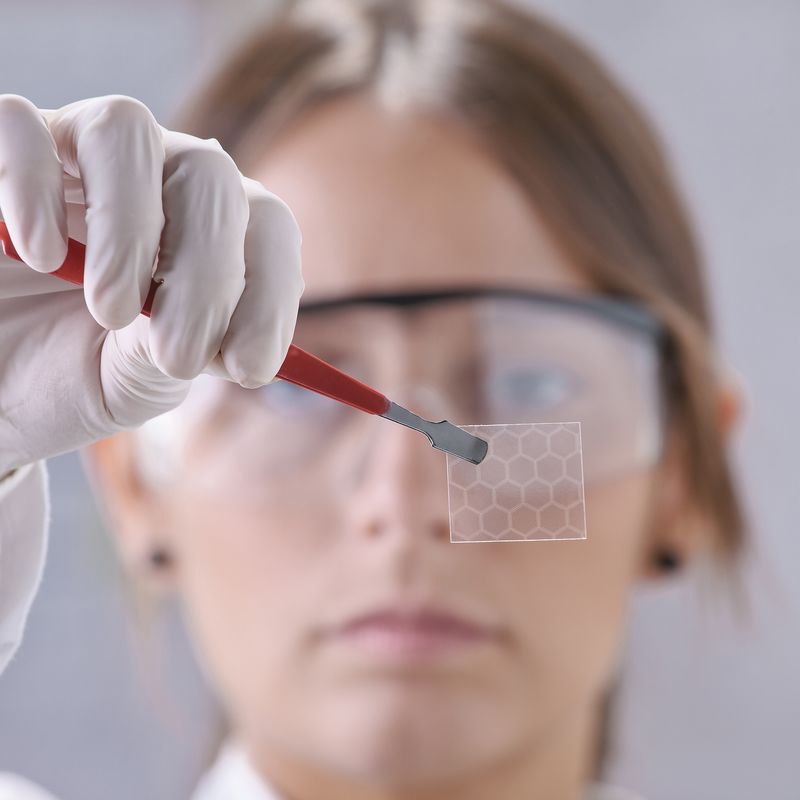
Education
Keralty group’s university, Fundación Universitaria Sanitas, is an autonomous and non-profit educational entity that seeks the comprehensive training of health professionals and other fields that contribute to the development and competitiveness of the country at academic, scientific, technological and human level.
Fundación Universitaria Sanitas is, itself, an academic community whose members take the free, autonomous and responsible commitment to work in the systematic search of truth in all fields of knowledge. To this aim, the university promotes integration, cooperation and interdisciplinarity with national and foreign entities in order to provide the country with significant, pertinent and social contribution useful for its competitiveness. Consequently, it encourages excellence in the development of its substantive functions, considers the worth of teaching and research as decisive aspects in professional training and understands research as an academic honesty commitment toward its environment conferring to its community projection a deep ethical content.
The university represents the pillar of Keralty’s knowledge management which is always at the service of the society and perfectly aligned with the vision and strategy of the group, acting as a cutting-edge observatory in terms of health systems, models and practices and continuous training of its professionals.
For all these reasons, BioKeralty also collaborates with Keralty group’s university in different research projects in the educational context.
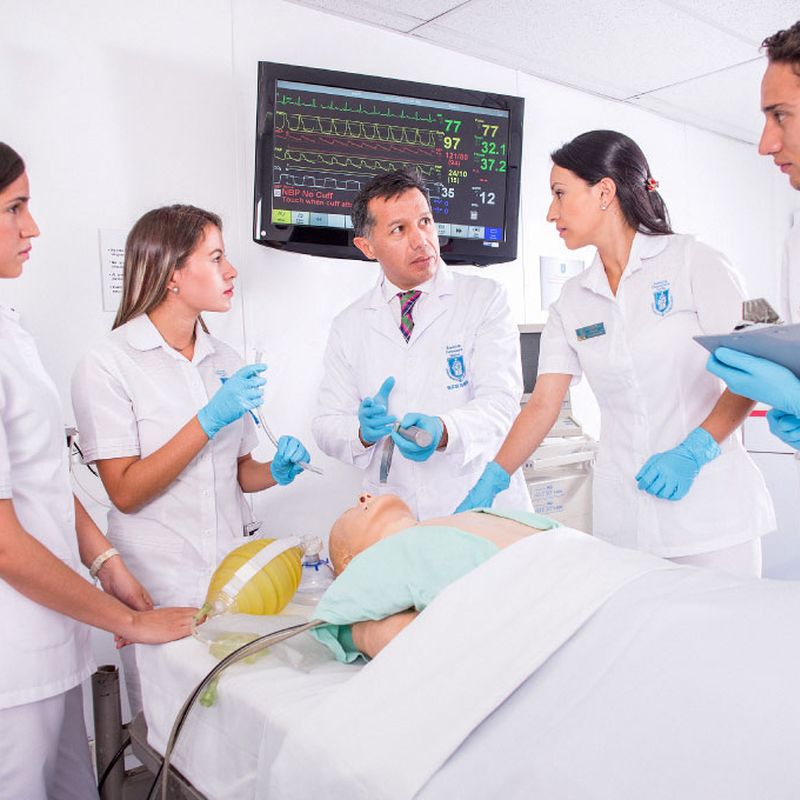
Community
BioKeralty develops a “partner role” in the community providing support, advice and assistance in the analysis of results derived from research, being the community, itself, the one who implements strategies to strengthen and improve life-quality and health conditions. BioKeralty helps in those research process carried out by different communities, generating and transferring knowledge referred to its lines of action. Thus, BioKeralty acts as a bridge between social and health under Keralty's health model: health care, social care and community support.
To this end, BioKeralty works on actions that promote the social network within communities to reduce those factors that may increase individual and community vulnerability. Specifically, it provides support and stimulates community initiatives to strengthen the social network within communities and establish contact channels between the different population support networks. In addition, it also identifies, mobilizes and coordinates resources including health on the agendas of community organizations and promoting health actions. All these actions are carried out under a research perspective, but giving a relevant role to the community in order to know its social reality and making it to participate in the research process, an essential requirement to promote well-being at individual and community level.
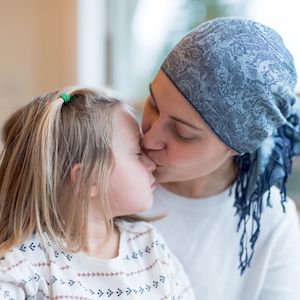
Social
Social innovation includes initiatives that try to find new ways to satisfy those social needs not adequately covered and to produce the behavioral changes necessary to solve the great challenges of society.
Well-being and life-quality are determined by the social and community dimensions. Based on this idea, BioKeralty understands health and disease as biopsychosocial and community processes that expand the biomedical approach and promote health. For this reason, it considers that it is important to promote cultural change and critical thinking to recover care leadership and empowerment, evolving from a traditional practice focused on the disease to a comprehensive model that integrates primary care and specialized care with social care and community support under the responsibility of a real care team. Consequently, it is a holistic approach to the health-disease process that allows contextualizing each situation to understand in depth each situation.
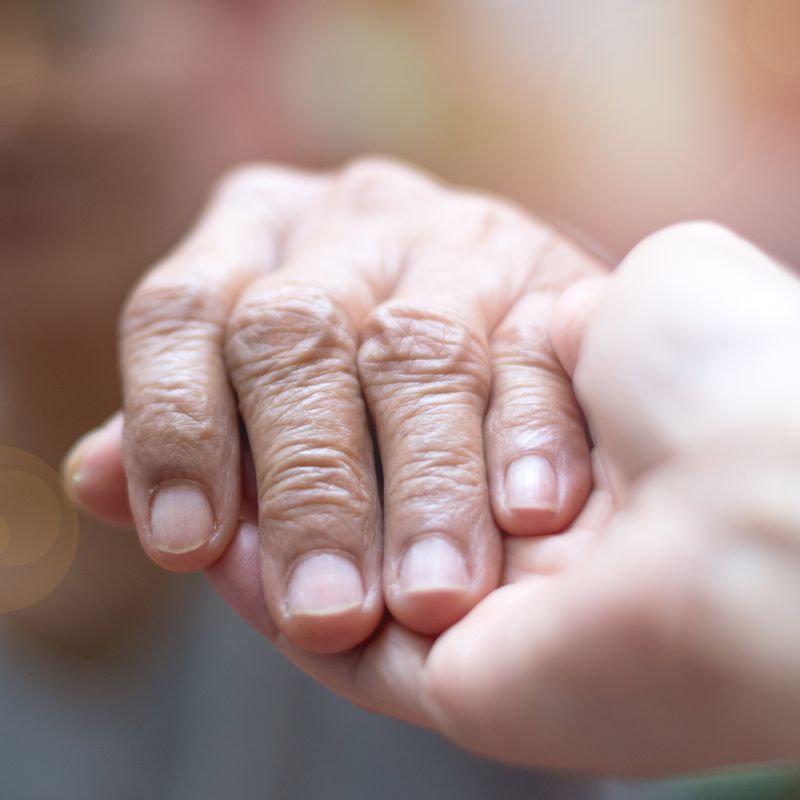
Health value
Health value pays attention on the search, design, execution and monitoring of different projects oriented to the creation of models that can identify people centered value, empowering and promoting an active participation of the patient in health decision-making to improve efficiently people's health.
Under this perspective, the establishment of national and international alliances with different leading public and private agents in cancer research is considered a priority, making possible to transfer the obtained results to the clinical practice.
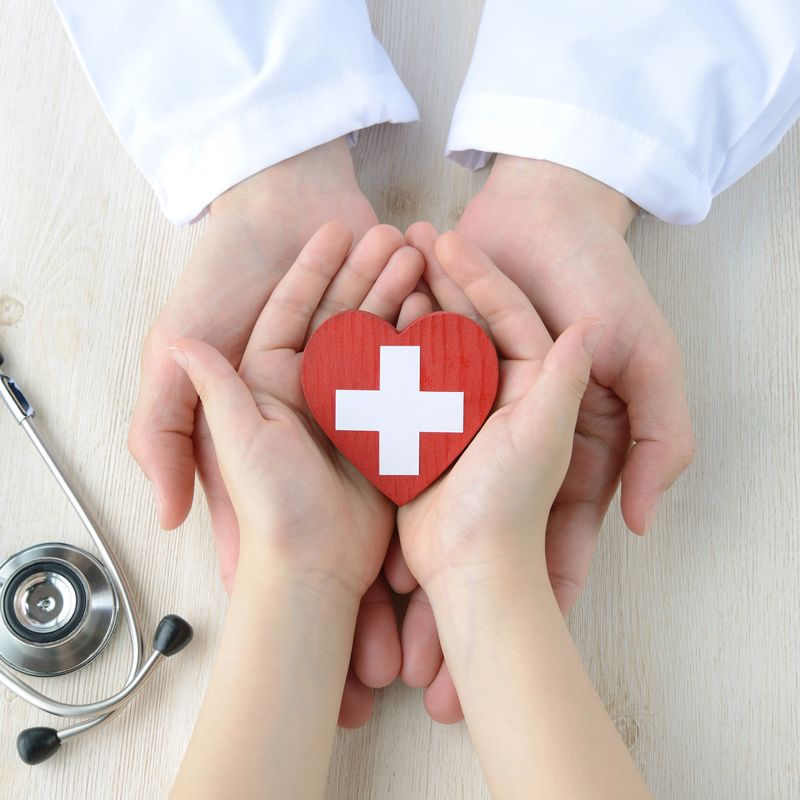
Research areas and projects:
Line 1 – Development of new therapies and diagnoses of oncological processes
The research projects included in this line of research are:
- Project 1: Nocanther-Introduction and scaling under certified conditions of a nanoformulation based on magnetic nanoparticles for a combined therapy against locally advanced pancreatic adenocarcinoma (H2020): this initiative is currently at clinical trial phase.
- Project 2: Theraglio-Microbubbles for multimodal imaging and theragnostic of gliomas (H2020): the main objective of this project is the combination of imaging technologies for diagnostic and personalized interventions in patients with malignant glioblastomas (GM). This has been possible thanks to the creation of a novel multimodal imaging system that employs next-generation microbubbles (MB) and which can act simultaneously as a contrast agent for magnetic resonance imaging (MRI) or intraoperative ultrasound (US), including an enhanced US Contrast (CEUS) and the resection guided by intraoperative fluorescence microscopy of GM.
Line 2 – Development of artificial intelligence and deep-learning techniques in the diagnosis and treatment of cancer
- Project 3: Mifludan-Microfluidic and Data Analytics for personalized treatments in oncology (ELKARTEK): its objective is the development of a test platform based on the synergies that arise from the fusion between microfluidic and data analytics technologies in order to create a support system for personalized cancer treatment. The project focuses on the integration of a microfluidic platform with software technology (data analytics) to develop a support system for cancer diagnosis and therapies by testing treatments on the platform using its data to generate predictive models. On one hand, synergies are obtained by the microfluidic platform for cell culture and the study of the effectiveness of different treatments under dynamic conditions and, on the other hand, from the development of the data analytics module that allows the extraction of knowledge hidden in the large amount of data generated by the microfluidic platform and derived from omic, clinical and therapeutic data that will feed the expert diagnostic aid system.
- Project 4: Oncofludat I and Oncofludat II-Personalized treatment of cancer patients through integration of Data Analytics and Microfluidics (ELKARTEK): OncoFluDat I and II is a firm commitment to the most cutting-edge technologies, such as medical Big Data and microfluidics complementary to Mifludan project (ELKARTEK 2018). OncoFluDat I and II are focused on the integration of a microfluidic platform with software technology (Data Analytics) to develop a support system for cancer diagnosis and therapies by testing treatments on the platform and from which data will be obtained to generate a predictive model.
Research areas and projects:
Line 1 – Metabolic syndrome and coexisting pathologies
The aging of the population is associated with chronic diseases, such as Metabolic Syndrome (MS), Type 2 Diabetes mellitus (T2D) and chronic neurodegenerative diseases (for example, Alzheimer’s disease (AD). Consequently, finding effective therapeutic solutions is essential to adequately manage demographic transformation consequences.
The projects developed in this field are:
- Project 1 Supreme: new salutogenic approach for the prevention, diagnosis and treatment of metabolic syndrome and coexisting pathologies (HAZITEK-ZE-2019/00022). The SUPREME project aims to research, develop and obtain new foods and genetic tools that allow an early diagnosis and an effective personalized nutritional intervention for the prevention and treatment of metabolic syndrome, T2D and its derivation in cognitive deterioration.
Line 2 – Alzheimer's disease
In the context of neurodegenerative diseases, Alzheimer's disease (AD) is the main cause of dementia among aged population implying a total lack of autonomy for affected people who require specialized care with a high social and economic cost. According to the World Health Organization, 50 million people around the world have been living with dementia since 2018 and this number will triple by 2050.
The projects developed in this field are:
- Neurofar / Drugs4Ad-I + D + I project on new drugs with therapeutic potential in Alzheimer's disease (ELKARTEK-KK-2016/00045; KK-2017/00014): the purpose of this research is to identify new therapeutic targets to act in a pharmacological way and to improve the limited effectiveness of currently approved treatments to treat Alzheimer's disease. Recently, ten serum phospholipids (PL) have been described as potential biomarkers of Alzheimer's disease, as well as PL alterations in brain samples. However, these results have not been yet related to the major neurolipid neurotransmission systems. The present project investigated new neurolipidic targets with great therapeutic potential and that could lead to new treatments in relatively short terms. The modulation and neuroprotection exerted by signaling systems by neurolipids, such as endocannabinoid (eCB), those of the lysophospholipids lysophosphatidic acid (LPA) and sphingosine-1-phosphate (S1P) and omega 3 fatty acids such as docosahexaenoic acid (DHA). Within these projects, it should be noted that specific research tasks are carried out in the area of New advanced in vitro platforms based on iPS and organoids for the screening of effective molecules and drugs for Alzheimer's disease.
- Project: Investigation of the pharmacological efficacy of design unsaturated fatty acids for the treatment of Alzheimer's disease (Igralzheimer) (RETO): the consortium of companies taking part in the IGRALZHEIMER project of RETO-2015 call have worked on the development of a series of molecules, which had previously shown their efficacy in murine models of Alzheimer's disease. In this case, the objective of the project has focused on the development and commercialization of these molecules as nutraceutical-functional and advance in the development of a future medicine.
Line 3 – Ictus
Ictus is one of the main causes of death and serious disability, a situation that also carries a huge personal, economic and social burden. It is expected that, in the coming decades, the aging of the population will drastically increase this type of pathology.
For several years, BioKeralty has been working in this line, having expanded in the last year its radius of action to the area of Keralty in order to improve the current ictus situation in Colombia. In this sense, relationships are being established with reference centers and prominent partners in this area to jointly build an ictus network to improve prevention and welfare and social aspects.
- Project: Pharmaceutical development of design lipids for the treatment of ictus and related pathologies (Metabolopaies) (CHALLENGE): in order to address the development of new ictus treatments, the consortium of this project has faced ictus problems searching new compounds that can modify the course of the disease or exert a neuroprotective capacity.
Research areas and projects:
Line 1 – Antimicrobial Resistance
Antimicrobial Resistance (ADR) targets those microorganisms resistant to the majority of antibiotics which represents a global challenge. In this context, BioKeralty has worked on the development of lipid nanoformulations to encapsulate those antibiotics with proved antimicrobial activity against the most resistant bacteria classified as the main responsible for ADR (Pseudomonas aeruginosa, Klebsiella pneumonia and Acinetobacter baumannii). These bacteria have showed being sensitive to colistin and amikacin (the latter very effective antibiotics, but with limited use due to their high toxicity). The mentioned nanoformulations proved to be highly effective with doses significantly lower than that of antibiotics in their free state (up to 40 and 60 times lower) which will reduce not only toxicity, but also treatment costs. These nanoformulations have been used successfully in the functionalization of bioengineered skin, providing antimicrobial properties and, thus, being able to treat and/or avoid infections present in chronic wounds or in large burns. The intellectual property of these developments is protected by EP 3017823 / WO 2015/001160 patents approved in Spain, Italy, France, Germany, the United Kingdom and the United States.
The projects grouped under this line of research are:
- Project 1: Nanoplatform (ELKARTEK): based on the development of a nanotechnological platform for its application in the biomedical field.
- Project 2: Nanogrow (HAZITEK): aimed at the creation of innovative and effective tissue substitutes based on combined technologies of cell therapy, nanotechnology and additive manufacturing.
- Project 3: NanoGSkin (Euronanomed): cross-sectional tissue engineering and nanomedicine approach to improve chronic wound therapy.
Line 2 – Human Immunodeficiency Virus (HIV)
In this line of research, BioKeralty has focused its efforts on the search for a treatment for HIV-1 infection/AIDS through the application of new genomic editing and viral transfection techniques, while evaluating its safety and preclinical efficacy and fine-tuning its production under GMP conditions. The projects corresponding to this line of research are:
- Project 1: Stop-AIDS (CHALLENGE): this initiative aims to discover new genomic engineering tools for the treatment of HIV-1/AIDS infection.
Research areas and projects:
Line 1 – Hospital process optimization
In order to improve healthcare through digital transformation, BioKeralty collaborates in the development, implementation and validation of a platform that, through artificial intelligence and indoor location, is able to improve clinical and operational efficiency optimizing results, care and patient satisfaction.
Line 2 – Automatic speech recognition and natural language processing
Regarding language aspects, BioKeralty also participates in the development, implementation and validation of a platform able to understand spoken language in the doctor-patient relationship completing and coding the electronic medical record. At the same time, the purpose through natural language processing is to make possible an early detection of diseases such as cognitive impairment or depression.
Line 3 – Surgical Simulation: virtual reality and augmented reality
E-Health area is working on the search for technologies, alliances and collaborations that could allow the implementation of surgical simulation at two levels: at an academic level, it seeks to train our students in the surgical field and at a professional level, the objective is give support in the planning of complex operations.
Line 4 – Big Data solutions for information storage and processing in clinical environments
As well, the e-Health area provides transversal support is provided to other BioKeralty areas, more specifically, in Big Data and Cloud Computing technology projects or projects related to communications and interoperability, clinical decision-making and artificial intelligence support systems in health and the provision of health services.
- Project 1: Osasukat (ELKARTEK): aimed at creating a platform for the management of the Electronic Medical Record of patients that allows working in an interoperable way, the project integrates the information from different data sources (mainly, management systems hospital of health centers) and offers services to make easier to professional the access to that information respecting privacy and confidentiality terms and monitoring the actions carried out on the information.
Research areas and projects:
Line 1 – Predictive medicine
It is focused on the development of genetic tests for neurodegenerative, metabolic, orphan and oncological diseases.
Line 2 – Personalized medicine
This specialty is oriented to the development of personalized medical devices for application in other medicine specialties such as regenerative medicine.
Line 3 – Genomic sequencing
Genomic sequencing seeks the development of a genomic sequencing platform that includes primary, secondary and tertiary analysis, not only of exomes but also of the entire genome to associate new genetic variables with the main diseases under study, such as, neurological disorders. congenital malformations, hematological problems (bleeding disorders) and cancer.
Research areas and projects:
Line 1 – Regeneration of chronic wounds
In the field of chronic wound regeneration, BioKeralty has been centered in the development of micro and nanoformulations with growth factors, especially with epidermal growth factor (EGF). The new developed formulations make possible a controlled and sustained release of encapsulated growth factors and have shown efficacy in vitro and in vivo using a lower dose in comparison to the growth factor in its free state. This dose reduction makes possible to decrease significantly the toxicity of the encapsulated drug.
About its efficacy, its capacity to promote wound healing has been evidenced, obtaining a closure rate and healing quality higher than the free growth factor. On the other hand, these nanoformulations have also been used to functionalize bioengineered cornea and skin, allowing to shorten production times (a fundamental aspect in the treatment of large burns).
The intellectual property of these developments is protected by EP 3023105 / WO 2015/001163 patents approved in Spain, Italy, France, Germany, United Kingdom, Turkey, Russia, Japan and the United States.
The projects developed under this line of research are:
- Nanoplatform Project (ELKARTEK): focused on the development of a nanotechnological platform for its application in the biomedical field.
- Nanogrow Project (HAZITEK): development of innovative and effective tissue substitutes based on combined technologies of cell therapy, nanotechnology and additive manufacturing.
- Nanogrow Project (RETO): aimed at the discovery of innovative and effective bioengineered cornea substitutes based on combined cell therapy and nanotechnology technologies.
- NanoGSkin Project (Euronanomed): focused on the cross-sectional tissue engineering and nanomedicine approach to improve chronic wound therapy.
Line 2 – Gene therapy
Gene therapy is focused on the research and development of new genomic editing techniques based on TALENs (Transcription Activator-Like Effector Nucleases) and viral transfection for the treatment or cure of genetic diseases. In this way, gene therapy allows to restore the function of mutated genes repairing, blocking or inhibiting the genes involved in the development of a disease.
The projects developed in this line of research are:
- Stop-AIDS Project (RETO): development of new genomic engineering tools for the treatment of HIV-1 / AIDS infection. Through the application of new genomic editing and viral transfection techniques, it is being evaluated the safety and preclinical efficacy in the treatment of AIDS.
- BG-17 (ELKARTEK): collaborative research focused on prevention, diagnosis, research and new therapeutic lines for rare diseases in the context of the Basque Country.
- “Rare diseases": rare or infrequent disease are referred to those diseases that have a low prevalence in the population, affecting less than 5 individuals per 10,000 people. Despite the low prevalence, these diseases affect a large number of people, since, according to the World Health Organization (WHO), these pathologies affect 7% of the world population.
- TAT-CF (H2020): research that seeks to identify therapeutic approaches for the treatment of cystic fibrosis using small transmembrane anion transporter molecules.
Research areas and projects:
Line 1: Nanoformulations for controlled release
The projects developed under this line of research are:
- Project 1: Berenice-Research Group in Nanomedicine and Innovation in Chagas Disease (H2020): the objective of the project seeks to establish a reformulation of an existing drug, Benznidazole, obtaining a safer toxicity profile, increasing its efficacy, improving its cost-benefit ratio and reducing its side effects.
- Project 2: Smart4Fabry-Functionalized GLA Nanoformulation for Fabry Disease (H2020): the project purpose is to obtain a definitive nanoformulation capable of encapsulating the GLA enzyme. Thus, it is intended to arrive at future clinical trials with a solid proof of concept in the preclinical setting to demonstrate that Nano-GLA has a greater capacity to reach the affected organs and a lower elimination rate than free GLA. The new nanoformulation containing encapsulated GLA is expected to allow a significant increase in efficacy (30-80% higher) compared to the current ERT containing free GLA.
- Project 3: Theraglio-Microbubbles for multimodal imaging and theragnostic of gliomas (H2020): the objective is to develop combined imaging technologies for diagnostic and personalized interventions in patients with malignant glioblastomas (GM). The research has been carried out by creating a novel multimodal imaging system that uses new generation microbubbles (MB) and that can act simultaneously as a contrast agent for magnetic resonance imaging (MRI) or intraoperative ultrasound (US), including a Contrast Enhanced Intraoperative Ultrasound (CEUS) and an Intraoperative Fluorescence Microscopy Guided Resection of GM.
- Project 4: Nanoplatform (ELKARTEK): development of a nanotechnology platform for its application in the biomedical field.
- Project 5: Nanogrow (HAZITEK): creation of innovative and effective tissue substitutes based on combined technologies of cell therapy, nanotechnology and additive manufacturing.
- Project 6: Nanogrow (CHALLENGE): creation of innovative and effective bioengineered cornea substitutes based on combined cell therapy and nanotechnology technologies.
- Project 7: NanoGSkin (Euronanomed):: cross-sectional tissue engineering and nanomedicine approach to improve chronic wound therapy.
- Project 8: TAT-CF (H2020): new therapeutic approaches for the treatment of cystic fibrosis based on small transmembrane anion transporter molecules.
- Project 9: Nocanther (H2020): introduction and scaling up under certified conditions of a nanoformulation based on magnetic nanoparticles for a combined therapy against locally advanced pancreatic adenocarcinoma. The project is currently in the clinical trial phase.
Line 2 – Platforms
- Project 1: Refine-Regulatory science framework for medical products and devices based on nano (bio) materials (H2020): the REFINE project proposes a regulatory science framework for the risk-benefit evaluation of medical products and medical devices that are based on nanomedicines and biomaterials. The center of this framework is the development of a product-specific decision support system that identifies the most efficient way to deliver the data required by regulation using the most appropriate methods.
- Project 2: Safe-N-Medtech (H2020): its objective is to develop an innovative platform that offers companies and reference laboratories the capacities, knowledge, networks and services necessary for the development, testing, evaluation, scaling and knowledge to market analysis of medical and diagnostic devices based on nanotechnology.
Líneas de investigación y proyectos:
Line 1 – Search and implementation of evaluation indicators based on health value (attention based on ABVS value)
This line of research seeks the implementation of evaluation indicators based on health value.
Line 2 – Evaluation of the impact of interventions and programs including the evaluation of the medical cost for health conditions
This line of research analyzes the impact of interventions and programs, including the evaluation of medical costs for health conditions.
Line 3 – Development and implementation of information systems for health, CMBD, through the application of new analytics and artificial intelligence techniques which allow the generation of prospecting and prediction models
Based on the application of new analytics and artificial intelligence techniques, this line is focused on the study of a minimum set of data to build prospection and prediction models.
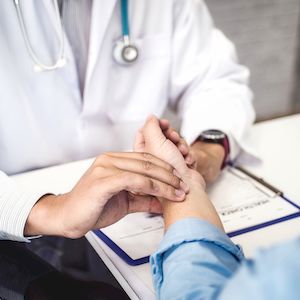 Primary care
Primary care Cancer
Cancer Chronic and neurodegenerative diseases
Chronic and neurodegenerative diseases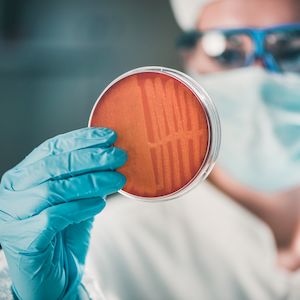 Infectious diseases
Infectious diseases E-health
E-health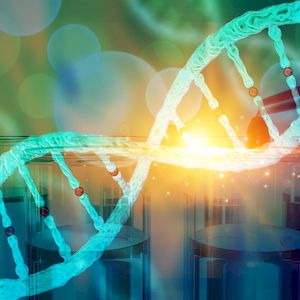 Genomics and personalized
medicine
Genomics and personalized
medicine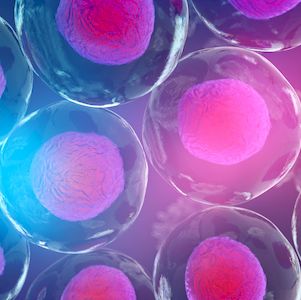 Regenerative medicine
Regenerative medicine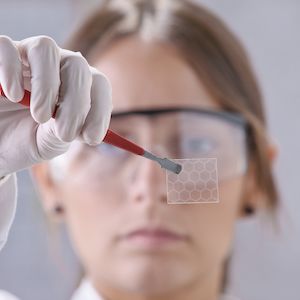 Nanotechnology
Nanotechnology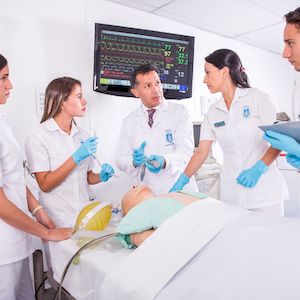 Education
Education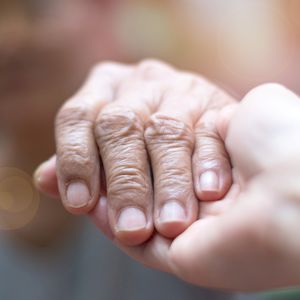 Social
Social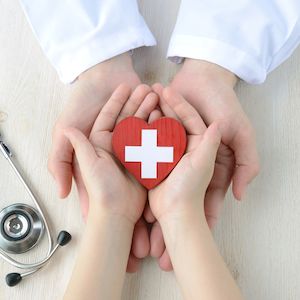 Health value
Health value